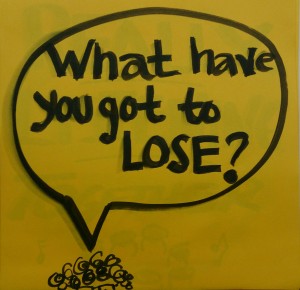 Well, it is on the schedule for tomorrow morning, so I had better be ready for my keynote at the Canadian Network for Innovation in Education Conference. This is a placeholder blog where I’ll post the talk artifacts (song lyrics, visuals, and whatever else we create) and resources. The resources below are placeholder for now, so stand by until tomorrow night! I’m talking without slides, with uke and probably (as usual) trying to pack too much in. But hey, if you aren’t learning, why do a keynote, right? Wish me luck
Well, it is on the schedule for tomorrow morning, so I had better be ready for my keynote at the Canadian Network for Innovation in Education Conference. This is a placeholder blog where I’ll post the talk artifacts (song lyrics, visuals, and whatever else we create) and resources. The resources below are placeholder for now, so stand by until tomorrow night! I’m talking without slides, with uke and probably (as usual) trying to pack too much in. But hey, if you aren’t learning, why do a keynote, right? Wish me luck
Resources
- Liberating Structures http:/www.liberatingstructures.com
- Digital Habitats: stewarding technology for communities http://bit.ly/RFhWzO
- Cynefin framework http://en.wikipedia.org/wiki/Cynefin
- The Social Labs Revolution http://social-labs.org/
- Aldo deMoor’s site on pattern language for collaboration (ask him about his Blackboard study) http://www.communitysense.nl/
- Group process pattern language http://www.groupworksdeck.org
- Source of the Curtis Ogden quote: http://interactioninstitute.org/blog/2014/05/14/do-acracy-vs-democracy/
- Source of the Wenger-Trayner quote http://cpsquare.org/2014/05/reporting-on-systems-convening-and-landscapes-of-practice-conference/
- Intellectual Estuaries of Alice MacGillivray http://onlinefacilitation.wikispaces.com/CNIE+2014+Intellectual+Estuaries
Related and Interesting Stuff
Good luck! That’s certainly a great list of resources. curious with the Social Labs if you had the same take as I did–that this approach makes perfect sense and is also a heavy lift for many groups or orgs in terms of time commitment and resources. Is anyone playing with lighter weight versions? Or with a model that distributes the work across orgs so that many hands make light work?
Ben, sorry for my slow reply. Between travel and picking up every bug that passes me by, I’ve been missing things.
Re Social Labs – agree on both points, but I also think we can think about the attitudes behind SL and not just the process. I keep thinking we are trying to push too much, for example, into the “trust” bucket but many networked activities rely on transactional trust, vs deep trust. So we need to prioritize what goes into the more intensive processes for deep trust, but not try and shoe horn in EVERYTHING there. Does that make sense?
Yes, that does make sense. I think we may undervalue transactional trust, especially when there is some larger context that is creating alignment (e.g. a shared sense of urgency about the need for change).
More generally, the thought has occurred to me recently that maybe it’s neither helpful nor necessary to try so hard!
I’m nodding about your last comment. 😉